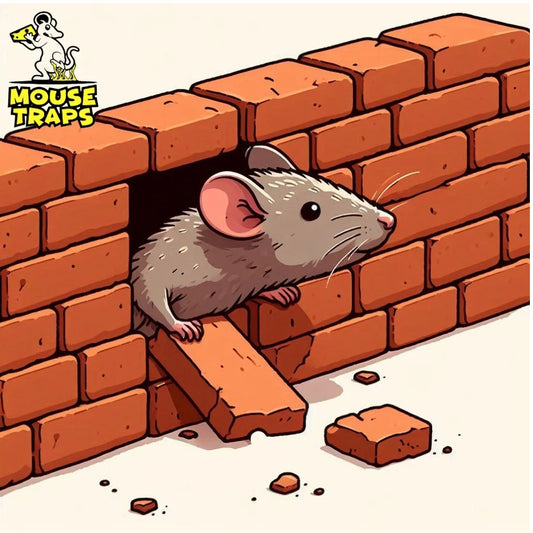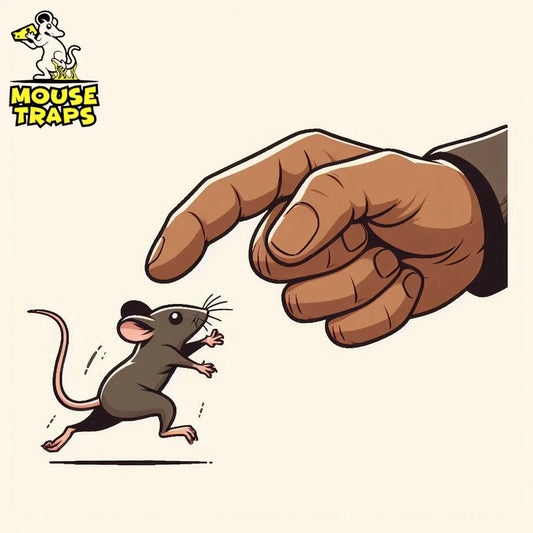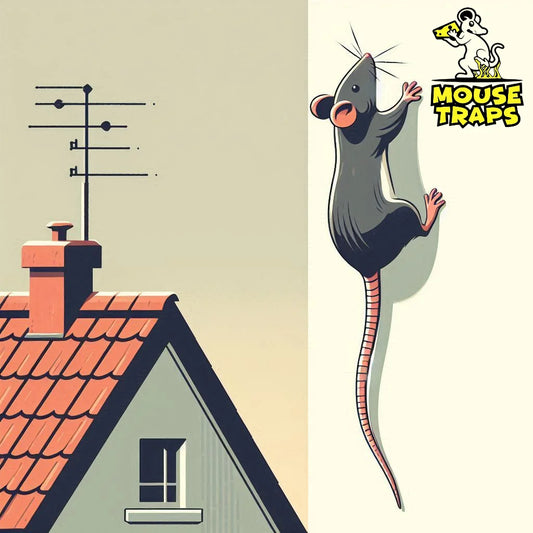Catching rats in the garden can be challenging, but there are several methods you can try to effectively control their population:
Traps:
Place rat traps strategically in the garden. Snap traps or live traps can be effective. Make sure to bait them with something attractive to rats, such as peanut butter, bacon, or dried fruit.
- Traps are a humane and targeted method for catching rats in the garden.
- Snap traps swiftly capture rats with a quick-release mechanism, ensuring minimal suffering.
- Live traps provide a means to catch rats without causing harm allowing for their relocation, to a suitable habitat.
- Baited with enticing treats like peanut butter or dried fruit, traps effectively lure rats and mitigate their presence in the garden.
- Strategically placing traps in areas frequented by rats maximizes their efficacy and aids in controlling the rodent population.
Live Traps:

-
Humane: Live traps offer a humane approach to pest control by capturing rats alive without causing harm or distress. This aligns with ethical considerations for dealing with animals.
-
Safe for Non-Target Species: Live traps pose minimal risk to non-target species such as pets, birds, or beneficial wildlife since they do not involve the use of toxins or harmful mechanisms.
-
Reusable: Many live traps are designed to be reusable, allowing for multiple captures without the need for frequent replacement.
-
Relocation: Live traps provide the option to relocate captured rats to a different location, away from the garden or residential areas, reducing the likelihood of re-infestation and promoting ecosystem balance.
-
Educational: Live traps offer the opportunity for homeowners to observe and learn about rat behavior and ecology firsthand before releasing captured animals back into the wild or a suitable habitat.
Rodenticides:

- Rodenticides are chemical compounds formulated to exterminate rodents, including rats, in the garden.
- Careful application according to manufacturer instructions is paramount to minimize unintended harm to non-target species and the environment.
- Common substances used to control populations are agents that interfere with the blood clotting process resulting in severe internal bleeding and ultimately causing death in rodents.
- Although these rodenticides are effective it is vital to exercise caution when using them due, to the risks they pose to pets, wildlife and humans.
- Employing rodenticides as part of an integrated pest management strategy can help combat severe rat infestations, but caution is advised to prevent secondary poisoning and environmental contamination.
Other Precautions and Tips To Avoid Rats:
- Eliminate Food Sources: Rats are attracted to areas with readily available food. Keep your garden clean and remove any potential food sources such as fallen fruits, seeds, or garbage.
- Seal Entry Points: Rats can squeeze through small openings. Seal any cracks or holes in fences, walls, or buildings that could serve as entry points to your garden.
- Keep the Garden Tidy: Remove clutter, overgrown vegetation, and any potential nesting sites like piles of wood or debris where rats could hide.
- Install Barriers: Use physical barriers like wire mesh or hardware cloth to block access to areas you want to protect.
- Natural Predators: Encourage natural predators like owls, hawks, or snakes to inhabit your garden. You can do this by providing suitable habitat or installing nest boxes for birds of prey.
- Ultrasonic Devices: Some people claim that ultrasonic devices can deter rats by emitting high-frequency sounds that are unpleasant to them. However there is debate regarding the efficacy of these devices. It is important to consider that they might not be effective, in every situation.
- Professional Help: If the rat infestation is severe or persistent despite your efforts, consider hiring a professional pest control service to handle the problem safely and effectively.
It is important to keep in mind the well being of pets, wildlife and children when using any control techniques. Furthermore it is crucial to adhere to regulations and guidelines regarding the utilization of traps and rodenticides.
Summary:
To sum up live traps have benefits when it comes to managing rat populations. They provide remedies, for managing pests, in gardens and residential areas. Live traps are more humane as they don't kill rats, and they are also affective to catch rats in the garden.




